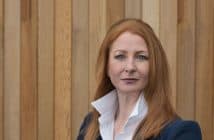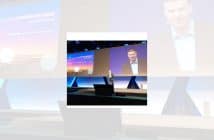When it comes to energy use, it is most sustainable to focus on efficiency first. With Passive House, this is also cost-effective. Practical examples of this approach will be presented by experts from around the globe during the 2014 International Passive House Conference and framework programme, to be held from 23 – 27 April in Aachen, Germany.
New projects and the latest solutions in the area of energy efficient construction will be showcased by speakers in more than a hundred lectures. An accompanying trade fair will offer building owners and property developers an overview of the breadth of possibilities available. The Conference will cover a wide range of topics including challenges in the most varied of climatic zones, building components for energy retrofits, and experiences with pilot projects on buildings with special uses. The framework programme will include Passive House Basics courses for newcomers and a Passive House component workshop. Buildings are responsible for over a third of the industrialised countries’ total energy consumption; the majority of this consumption goes towards the heating and cooling of the spaces in which we live, work and learn.
Passive House buildings can save up to 90% of this energy. The remaining demand can easily be covered using renewable energy sources. “Anyone who builds a Passive House is embarking on a personal energy revolution by setting themselves free from high running costs – and this regardless of any political or other influences that may come,” states Dr. Wolfgang Feist, Director of the Passive House Institute. “At the same time, Passive House is about much more than just energy efficiency.
The standard offers the highest level of thermal comfort and provides tangible financial benefits for building owners and users alike.” Several excursions to completed buildings in the region surrounding Aachen have been organised within the framework of the 18th International Passive House Conference in 2 Aachen; among them, a Passive House school, a church refurbished with Passive House components, and various residential and office buildings. Excursions to Belgium and the Netherlands are also planned. “The variety of buildings shows the diversity facilitated by Passive House.
The standard is achievable for almost any type of building, whether new build or refurbishment,” affirms Feist. Indeed, a variety of conference lectures will report on special use buildings such as Passive House swimming pools and hospitals. The annual International Passive House Conference, organised by the Passive House Institute, has been taking place at changing venues since 1997.
The 2014 Conference is being organised in cooperation with the City of Aachen and the EnergieAgentur.NRW (Energy Agency of the State of North-Rhine Westphalia in Germany). T
he complete programme can be viewed at www.passivehouseconference.org Conference: Friday, 25 April and Saturday, 26 April 2014
Framework programme: starting Wednesday, 23 April 2014 Excursions: Sunday, 27 April 2014
Venue: Eurogress Aachen Organisers: Passive House Institute, City of Aachen and EnergieAgentur.NRW For further information and to register, visit www.passivehouseconference.org
Press contact: Benjamin Wünsch | Passive House Institute | +49 (0)6151-82699-25 | presse@passiv.de Conference contact: Barbara Löbau | Passive House Institute | +43 (0)512-570768 | tagung@passiv.de




